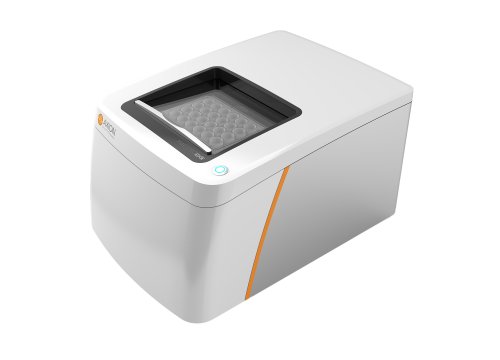Authors: Lauren Rylaarsdam, Jennifer Rakotomamonjy, Eleanor Pope and Alicia Guemez-Gamboa
Nature Communications, 27 January 2024
Scientists use cortical organoids on Maestro MEA to examine the impact of the PACS1 p.R203W variant on developing human neural tissue.
PACS1 syndrome is a rare genetic neurodevelopmental disorder caused by a de novo pR203W variant in phosphofurin acidic cluster sorting protein 1 (PACS1) and characterized by distinct craniofacial abnormalities, mild-to-severe intellectual disability, and a range of health concerns. Previous research has demonstrated that PACS1 plays a key role in many biological processes but its impact on neurodevelopment is not fully understood.
In this study, scientists generate induced pluripotent stem cell (iPSC)-derived cortical organoids to assess the impact of PACS1 on developing human neural tissue, using Axion’s noninvasive Maestro multielectrode array (MEA) platform to characterize the phenotype of PACS1-mutant hiPSC-derived neurons in vitro and demonstrate that PACS1-mutant glutamatergic neurons exhibit prolonged network bursts and decreased synchrony. Together with other results, the authors conclude that their findings may lead to novel therapeutic approaches, importantly noting that “the variant has a disproportionate impact on more mature neuron populations, providing hope that an intervention could be effective even after diagnosis.”


